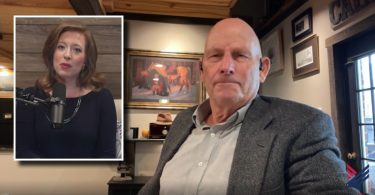Service Academies, pay attention:
By Neetu Arnold | USA Today
Divisive, extreme and intolerant. That’s what diversity, equity and inclusion (DEI) efforts have become. And conservatives are no longer the only skeptics.
The New York Times this month uncovered that the University of Michigan’s programs to promote supposed diversity and inclusion − at a cost of about $250 million since 2016 − instead fueled campus discord. After years of a heavy emphasis on DEI, Michigan students struggle to engage with peers from different racial, political or religious backgrounds.
The Times’ coverage is a turning point. For years, news outlets dismissed critiques of DEI as “racist dog whistles,” “slurs” and the new “Red Scare.”
Meanwhile, universities and corporations adopted racial considerations in hiring to meet equity goals.
Universities established bias response teams to monitor speech, ostensibly to protect minorities from feeling excluded but often targeting views they simply disagreed with. And university faculty recruiters used diversity statements to filter applicants based on their political commitments to progressive causes.
All of these decisions aroused ire from conservative media, but the opposition failed to deal a decisive blow to the movement. The debate around DEI was over values rather than facts, and few people in the mainstream wanted to challenge inclusivity as a value.
DEI industry built at least in part on false information
So, an entire industry was quietly built by appealing to these values, consisting of DEI consulting firms, authors and workshops. Individuals like Robin DiAngelo, author of “White Fragility,” and Ibram X. Kendi, author of “How to be an Antiracist,” became famous as DEI gurus, charging five-figure speaking fees to prominent universities and corporations.
This past year, it’s become increasingly clear that the DEI industry is built at least in part on false information.
Consulting firm McKinsey & Co., in a series of reports published since 2015, claimed corporations with more diverse executive teams are more profitable. Even the U.S. military cited McKinsey’s results as a justification for investing in DEI.
But when the study was replicated in March with another sample of firms, it turned out that the original findings didn’t hold up. In fact, McKinsey’s methodology was flawed because it couldn’t demonstrate a causal link between diversity and profitability.
Fundamental flaws have also appeared in research concerning DEI in health care.
The push for racial equity in the health care industry was based in part on a 2020 study that claimed Black babies fare better with Black doctors, attributing high mortality rates for Black infants to systemic racism and implicit bias among White doctors.
But the narrative was called into question when Harvard professor George Borjas and Manhattan Institute fellow Robert VerBruggen controlled for birth weight differences between infants, a variable that was not considered by authors of the original 2020 study. The results of the original study disappeared once birth weight was considered.
So what went wrong?
The intensity of the racial reckoning of 2020 pushed many corporate executives and university administrators to make hasty decisions about DEI initiatives. And the moral fervor surrounding the issue squelched any dissent.
Now that the haze has cleared, we’re starting to see how individuals exploited the “DEI moment” for personal gain or to promote their political agendas.
Instead of politics of racial resentment, focus on diversity of thought
As major institutions and large employers such as Ford and Lowe’s begin to distance themselves from DEI, many will start to look for a replacement. DEI was born out of a general sense that our country’s institutions hadn’t yet reached the ideals of equality and fairness characterizing the Civil Rights Movement, and that more needed to be done.
The DEI movement led people who wanted more fairness on an extremist path, promoting racial resentment and language policing instead of real solutions.
If we want our institutions to stay away from the politics of racial resentment as DEI wanes, we need other pathways to address real issues of unfairness and exclusion.
Academic and business institutions alike should focus on diversity of thought, teaching students and employees to handle disagreement in healthier ways.
We should eradicate unfair policies like legacy admissions at elite universities, which hypocritically claim to champion equity.
And government agencies should dismantle all race-based policies, which have fanned the flames of racial resentment for far too long.
The death of DEI isn’t a tragedy − it’s an opportunity.
Neetu Arnold is a Paulson Policy analyst at the Manhattan Institute and a contributor with Young Voices. Follow her on X: @neetu_arnold
Other USA Today articles:
Opinion: Texas proves DEI programs aren’t just wasteful – they’ve failed. Focus on merit instead.
Opinion: DEI is unraveling at our universities. Good riddance to a failed and divisive bureaucracy.








Leave a Comment